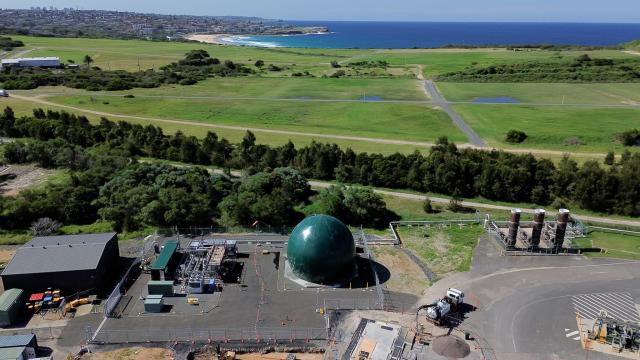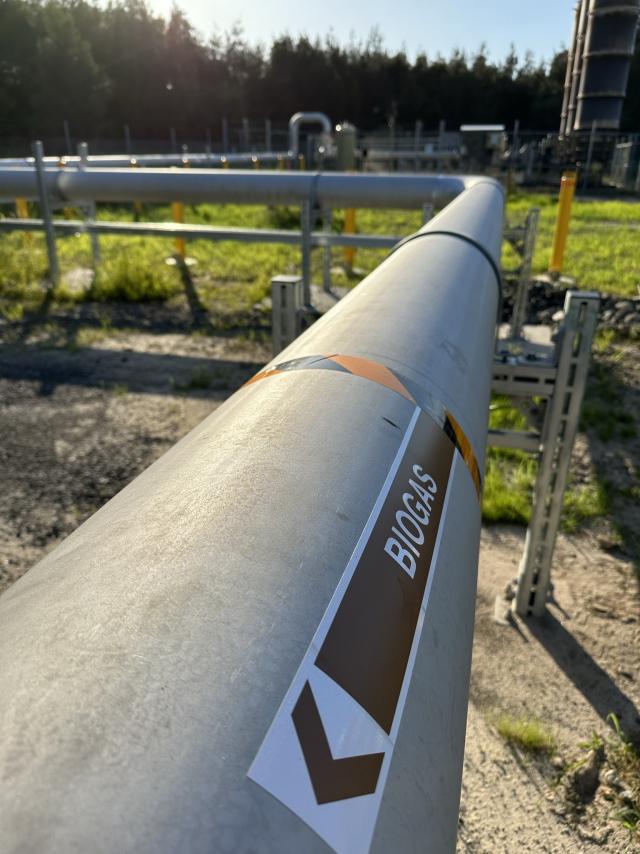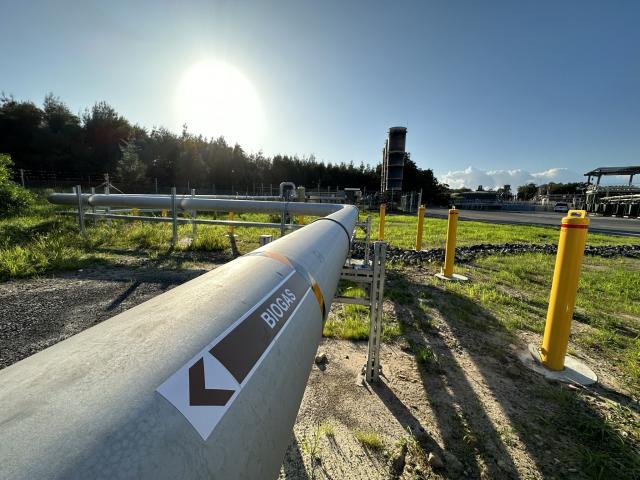Leading electricity and gas distributor Jemena has begun injecting renewable gas into its New South Wales gas network from the groundbreaking Malabar Biomethane Facility, co-funded by ARENA. Federal Climate Change and Energy Minister Chris Bowen officially opened the project earlier this month, cutting the ribbon on an Australian-first facility that captures biogas from Sydney Water’s wastewater treatment plant, and converts it to biomethane.
The project is a leap forward in Australia’s energy transition, helping to give gas users access to a more sustainable substitute for natural gas. The project is expected to initially produce around 95 terajoules of gas per year, a volume equivalent to the average annual gas usage of approximately 6300 homes. Over the project’s four-year trial period, Jemena anticipates production could be scaled up to produce around 200TJs of biomethane each year – equivalent to the average annual usage of approximately 13,300 homes if put to use in the residential network.
The supply of biomethane is a game-changer for heavy industry and manufacturers; giving those critical businesses that rely on gas for their heating and firming operations a viable pathway towards decarbonisation. Biomethane also gives households who love their gas appliances continued choice of energy source for how they cook their meals and heat their homes.
While it will work closely with Sydney Water to increase biogas supply at Malabar to maximise its potential, Jemena believes the amount of biowaste in proximity to its NSW gas network could produce 34 petajoules of biomethane, roughly the size of the State’s total annual residential gas use in 2022.
“This project proves that biomethane is a here and now technology. Biogas upgrading into biomethane is a proven renewable energy source that can be easily scaled up to give our businesses a critical tool to help them decarbonise in a reliable way,’’ Jemena’s GM of Renewable Gas, Linda Cardillo, said. “This revolution in gas has long been a reality in Europe, where certification and renewable gas targets have generated phenomenal growth in the supply and demand of biomethane. In Germany, there are more than 11,000 biogas plants, while across the border in France, 112 biomethane projects were opened last year alone.”
The potential, Ms Cardillo says, can be realised in Australia, but requires a shift in gears from governments to stimulate investment and generate demand. For the emerging industry, a Renewable Gas Target represents the crucial key in unlocking the full commerciality of renewable gas and making it available to households and businesses at scale and at a price comparable to natural gas.
“We see great opportunity for biomethane facilities to be developed across regional areas, stimulating local communities. This will not only bring renewable gas to communities but will also bring new jobs and other economic opportunities to the regions.”



















